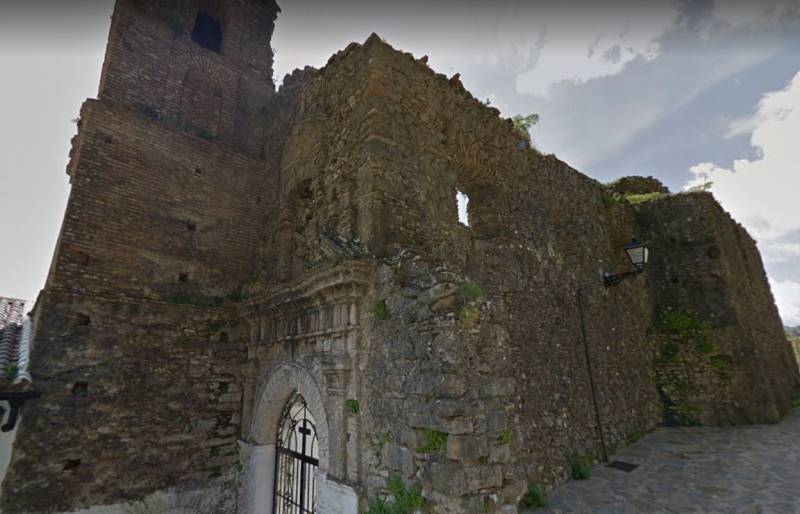Spanish News Today Editors Roundup Weekly Bulletin Sept 10
The Queen is dead.
And, incredible as it may seem, there was other news this week.
End of an era
Elizabeth Alexandra Mary Windsor, Queen Elizabeth II of the United Kingdom and the Commonwealth, has
passed away this Thursday, September 8 at her home in Balmoral Castle. The alarm was raised on Thursday after her doctors said they were “concerned”, a stronger statement than they’ve ever released before in relation to Her Majesty’s health, which let everyone know this was probably going to be the end.
Reports came through of all the members of the Royal Family rushing to Scotland to be by her side, and by the evening she was announced to have died “peacefully” and surrounded by her children and grandchildren, according to statements from the Palace.
Now a family mourns their matriarch in a domestic scene that is familiar to anyone who has ever experienced loss. But for anyone in the UK under the age of about 90, she is like a grandmother to us all. The grief in the country is palpable for a monarch who lived to 96 years, 70 of which she spent on the throne, making her the longest-serving British monarch in history, and the second longest overall behind King Louis XIV of France.
Other tributes have come flooding in from around the world.
The Spanish capital, Madrid, has announced three days of mourning from Thursday to Sunday, while the Real Casa de Correos, the seat of the regional government in Madrid, will be lit up in the colours of the Union Jack. Dignitaries, officials and institutions across Spain have sent their condolences to the family and praised a woman who was a powerhouse of the 20th and 21st centuries, a mainstay in the lives of many, and a key player in the history of humanity whose place in the pantheon of world figures is secured.
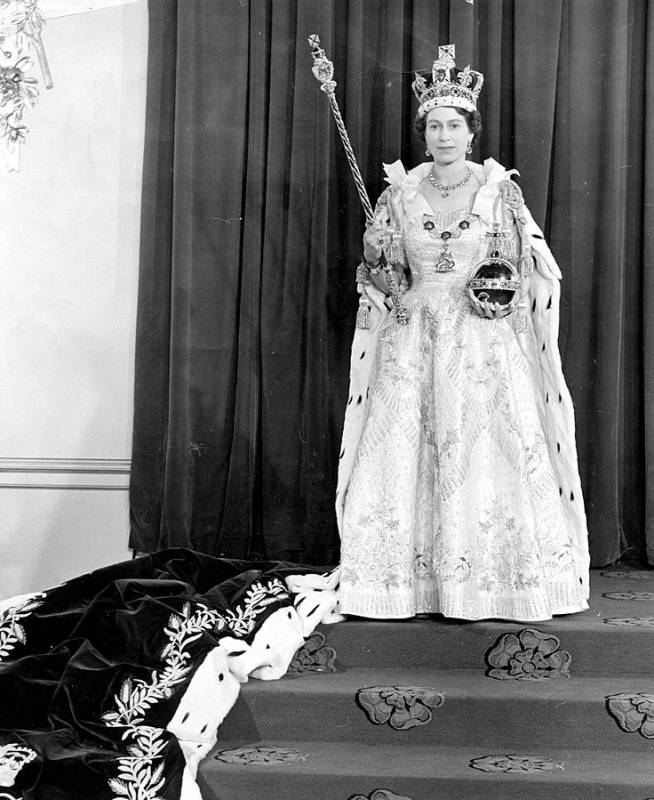
From 1952 to 2022,
the Queen saw it all. She witnessed 15 Prime Ministers come and go and the British Empire fall into decline to be replaced by the voluntary association of the Commonwealth of Nations. She lived through the sexual and feminist awakening of the 1960s, saw society change to become more open. The changing role of the media and its relation to democratic technology like social networks made her and her family celebrities first and the chosen rulers of God on Earth second, and she was forced to adapt with the times to try to remain relevant in an ever more cynical, fractured world.
She weathered scandals big and small, from the allegations over her role in the mistreatment and death of the beloved Princess Diana, to her role in the mistreatment and racial prejudice against her grandson Harry’s wife Meghan Markle. She had to deal with her husband Prince Philip’s notorious racist remarks and the convincing accusations of paedophilia against her son Prince Andrew.
But she did so with an air of detachment and grace that set her above and beyond such pettiness. Like any good iconoclast, she has managed to transcend her own mortality to become enshrined – even in life and now more so in death – as a legend, a symbol of perseverance and good humour, the very definition of what a good leader should be, humble and a mirror in which to reflect the mood of a people.
The role of the monarchy, not only in modern Britain but in countries around the world, is increasingly in question as an institution founded on ancient principles of the hereditary right to rule, which historically was claimed and maintained with violence. The fact that we have elected leaders to make decisions on our behalf and that the monarchy is largely a ceremonial position now, albeit one that costs the taxpayer tens of millions to sustain each year, make the future of the Crown increasingly unstable.
Spain’s King Felipe VI, who took over from his embezzling, elephant-hunting father in 2014, is no stranger to the changes that a monarch must make to remain in power and in his people’s good books; he has disinherited his father, cutting off King Emeritus Juan Carlos I’s annual stipend, and has himself refused to accept his father’s inheritance. Further, he has undergone a process of opening up his official income and expenses to public scrutiny in an effort to show that he is not sponging off the Spanish people.
A
distant cousin of Queen Elizabeth (and by extension the newly ascended King Charles III) via their common ancestor Queen Victoria, Felipe may have some pointers for the incoming British head of state on how to further democratise the Crown, in a process that at one and the same time solidifies its hold on power and undermines its untouchable and unimpeachable nature.
The predictable and inevitable messages of hate from detractors have proliferated online, along with a slew of memes, from those who viewed the Queen as the propagator of an unjust and outdated system of societal order; the heir to the genocidal project of the British Empire in Africa and Asia which killed up to an estimated 150 million people; a personal apologist for the paedophilic elements in her own family; an aloof and ineffectual puppet ruler; and someone who steadfastly refused to reorder the distribution of wealth from the hands of the wealthy to the less fortunate.

But overall, she is being praised as a gentle human; a kind and understanding person; and a role model of impeccable personal and public behaviour in a world in constant turmoil. She has been a bedrock in the lives of not only her subjects, but those from around the world who admired her stalwart commitment to impartiality and public service to the destiny she was thrust into. Whatever one thinks of her, the Queen is indisputably irreplaceable, and her absence will leave a noticeable gap in British and world affairs as we bid farewell to a unique and remarkable woman.
Rest in Peace.
Squat a palaver!
Believe it or not, there were actually other things in the news this week before the passing of the Queen overtook everything else on Thursday, and life – and the news – go on in Spain.
One Murcia man has gone viral recently after his actions opened up a can of worms over the treatment of homeowners whose properties are squatted in Spain.
A week ago, a Spanish homeowner in El Esparragal, Murcia, opened a fierce debate over squatting laws in Spain after he took the law into his own hands and forcibly removed the ‘okupas’ who had overtaken his home.
Víctor, who owns a house in El Esparragal, Murcia, was on holiday with his wife and children when squatters moved into his house. That’s when Víctor decided to take the law into his own hands.
He went round there with a couple of friends, all of them carrying sticks and golf clubs, in an attempt to scare the okupas into leaving.
And it worked! The frightened squatters cleared out of there quick, one of them seemingly having just got out of the shower with a towel around his waist.
While the law is, with noble intentions, set up that way to try and protect the ability of people in need to stake claim to shelter, it’s surely a perverse reversal of the normal order of things when a person staying illegally in my house has more right to live there than I do.
Homeowners are rightly up in arms about the situation, and while Víctor’s fate hasn’t yet been decided by the courts, the case has brought to light the hidden truth about property laws for all the Victors and Victorias out there who are unfortunate to have their homes in Spain squatted.
Isn’t it time something changed already?
Germany family dies in mystery plane crash
The plane was being piloted by the father of the family, Karl-Peter Griesemann, a wealthy German businessman and the owner of the aeronautical company Quick Air, who was transporting his wife and daughter back to their home Cologne after spending their summer vacation in Cadiz, along with a fourth person who has not been identified but may have been the daughter’s boyfriend.
Their Cessna private plane took off from Jerez Airport last Sunday, passing over Spain, France and even its final destination of Germany before venturing over the Baltic Sea close to Latvia. Contact with the plane was lost, and Spanish, French, Danish and NATO planes that were despatched to find out what was wrong with it could see no one in the cockpit.
It’s thought that there was a problem with the cabin pressure which caused all four people flying in the plane to pass out, and it went into a tailspin, crashing off the Latvian coast of the Baltic Sea.
Shop around the clock
On hearing this, supermarket chain Carrefour has come flying out of the gate before the other stores with a money-saving plan of its own.

The supermarket will offer a shopping basket of
30 basic items for just 30 euros, containing everything from grocery staples like cereal, preserves, pasta, oil and coffee to a selection of personal care, cleaning and perfumery products. The promotion will be available at all Carrefour stores in Spain and online from September 12 until January 8.
The vice president has already been met with stiff opposition from these industry giants, who argue that putting a price cap on basic products like bread, milk and fruit is illegal and goes against fair market competition.
In response, the Minister of Finance, María Jesús Montero, categorically ruled out establishing a legal price limitation as was done with masks at the height of the pandemic, but instead suggested that an agreement be reached on a general price reduction on 20 or 30 staple shopping products.
Car trouble
Our friends at the DGT are back this week with some more sage advice, this time about the rules surrounding selling second-hand cars. Used vehicles in Spain have always been a little on the pricey side, so it’s no wonder that many people avoid garages and dealerships and choose instead to post a ‘for sale’ sign in the window in an attempt to attract a passing buyer.
But before you pull out the poster board and markers, you should know that
this is actually illegal in Spain, even if the car is parked up in your driveway. It may seem illogical, but the reasoning is quite simple: so-called covert advertising is banned in urban areas, and having a ‘for sale’ sign in your windscreen falls under this umbrella, potentially resulting a fine of up to 1,000 euros.
The curious little law is also designed to crack down on illegal street-side vendors who sell vegetables, fruit and what-not out of their cars.
Of course, if it’s considered an infraction to hang a ‘for sale’ sign in a parked car, it’s a more serious offence to actually drive a vehicle when there’s any kind of sticker or poster in the windscreen, as this is considered a safety issue by the DGT and will land motorists with an automatic fine of 200 euros minimum.
Traffic police seem to be everywhere in Spain, and one of the most successful tactics employed by the DGT to catch rule breakers is its use of camouflaged vehicles, which innocuously cruise around the roads nabbing drivers for all sorts of infractions.
The number plates of the undercover traffic police are white with black writing, and always begin with the letters ‘PGC’ followed by four digits and another letter sequence. These letters identify them as vans belonging to the Civil Guard – Policía Guardia Civil.
Other police forces use a similar system to identify their vehicles. For example, plates with the letters ‘CNP’ identify the vans as belonging to the National Police Corps (Cuerpo Nacional de Policía), while ‘ET’ means the vehicles are driven by the Army (Ejército de Tierra).
Murcia
The idea is to update the wastewater services and prevent any further contamination (at least from this particular source) into the Mar Menor lagoon. They have been given a deadline of three years to do so, although the details of what happens if they don’t meet this timeframe and exactly how their success will be measured have not been revealed.
Meanwhile, another youth – a 25-year-old British national – is to be
extradited from Murcia to the UK. One of the UK’s most wanted criminals, Michael Morgan Foster has spent several months behind bars in Murcia after he was captured by Spanish Police there back in June. He had been on the run since 2020, and is accused of defrauding “numerous people” and laundering up to £30 million.
Be sure to check out our EVENTS DIARY for news on all the events coming up soon in Murcia
Spain
The simple answer is that it’s probably too soon to tell, but the new PM has been proven changeable in the past, which could make a lot of people uneasy. Originally voting to Remain back in 2016, Ms Truss quickly became an ardent supporter of Brexit, and she is currently causing waves in Europe by openly stating that she is willing to overhaul Article 16 which would jeopardise the Northern Ireland protocol, potentially fracturing a hard-won peace in Ireland and forfeiting the rights of UK citizens in the EU as protected by the bill.
If activated, Article 16 would essentially force a no-deal Brexit, leaving Brits resident in Spain with their current rights to live, work and travel in the EU restricted further than they already have been since Brexit.
With negotiations over exchanging UK driving licences for Spanish ones dragging on interminably and residency applications being processed at a snail’s pace, it’s understandable that many Brit expats in Spain feel abandoned by UK government since Brexit.
Although the front of the stylish hotel overlooks the seaside promenade, it is understood that the tourist fell from a window at the back of the property above Calle Marques de la Cenia, although her death isn’t being treated as suspicious at this time.
If you own a pet in Spain, you will have to get it registered. But don’t worry – it’s expected that the DNI will be completely free and automatically allocated when the pet is microchipped, which is mandatory in Spain, or registered with an official association.
Essentially, the DNI for animals will be a digital document that can be accessed from anywhere in the country and will contain information such as the animal’s vaccination records and medical history, as well as the address and contact details of the owner.
Alicante
According to the National Police in Spain, the ‘cybercriminal’ offered these fraudulent TV services through an infrastructure administered from the UK, targeting potential customers in Alicante, Malaga and elsewhere in the country.
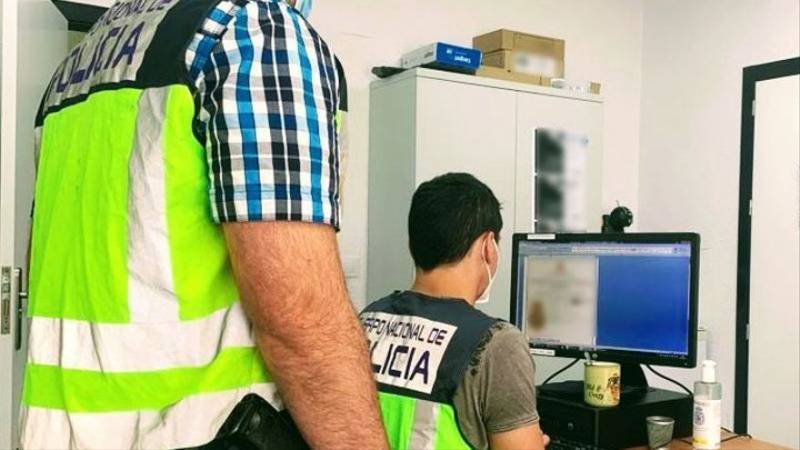
Police investigating the crime got their first whiff of the man’s presence from an instant messaging app dedicated to the illegal supply of paid TV channels, an app that had been downloaded more than 50,000 times.
The modus operandi of the criminal was extremely sophisticated, with police reporting that he had “a high degree of technological specialisation and had created a technological infrastructure through which this offence was committed which was remotely administered from the United Kingdom”.
The illegal services were promoted through web pages which displayed various viewing packages at prices much lower than the official multimedia suppliers.
It serves as a reminder to expats living abroad that if they want to access television services from their home country, there are much easier and legal ways to do so online and through official vendors.
Andalucía
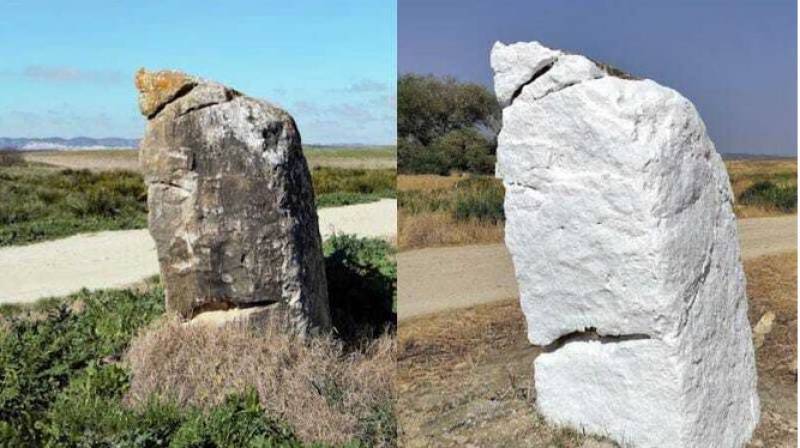
Residents and historians in rural Cadiz were left baffled earlier this week when they woke to find the 5,000-year-old Menhir de La Lancha megalith, located on the CA-6105 road between Villamartín and Arcos,
completely whitewashed.
A menhir, also known as a standing stone, is a large manmade upright stone that normally date back to the Bronze Age in Europe. Although the Menhir de La Lancha doesn’t have any plaque or information board describing its importance, and it is not even catalogued by the Cultural administration, the 1.77-metre-high stone structure is well known in the area and is one of only half a dozen megalithic menhirs in Cadiz.
The fact that it was unscrupulously painted white has prompted an investigation by the Junta de Andalucía, but the most likely explanation is that a concerned local painted the structure to make it stand out in the dark to avoid accidents, not realising its historic value.
Whatever the reason, be it vandalism or ignorance, at least the whitewashing has served to draw attention to the historical importance of the megalith so that it can finally be officially recognised and protected as an asset of cultural interest, just the same as castles and cave paintings are. It remains to be seen whether the paint can be removed from the megalithic landmark and save its former appearance.
Meanwhile, other historical landmarks in the region are being recognised for their beauty, specifically the cemeteries competing in the
‘Best Cemetery in Spain’ contest. The graveyard of Villaluenga del Rosario is a finalist along with the cemeteries of Archidona (Malaga), Iznájar (Cordoba) and four others from around the country.
The Best Cemetery in Spain is, according to its organisers Adiós Cultural magazine, is an “initiative [that] seeks to recognise the historical, social and heritage interest of cemeteries”, and in fact, rather than being a macabre pastime, graveyards are a popular place to visit for the peace and sense of beauty they impart.
The winner of this curious but coveted prize will be decided by an online public vote, which is open until the end of this month. May the best tomb win!
You may have missed…
- Last ditch attempts to prevent brutal Spanish bull run.
The Ministry of Social Rights in Spain has launched a last-minute attempt to stop the controversial bull run in the Valladolid town of Tordesillas, scheduled for Tuesday September 13.
- Diesel prices explode in Spain, surpassing petrol costs by 15 cents.
People driving diesel cars will be feeling the pinch this week – while petrol prices in Spain have been progressively falling in recent weeks, diesel has jumped by 2.1% to €1.921/litre.
- Licence granted for new Licor 43 gastro-market on the seafront in Cartagena.
The Town Hall of Cartagena has issued the licence for work to begin on the new gastro-market on the seafront in the city centre with a spot for the famed Licor 43 drink.
- Hunters bite back as Spanish animal protection law includes working dogs.
Farmers and rural dog owners are arguing that Spain’s new Animal Welfare Law should be amended, and their animals excluded from the protection legislation.
- Spain recalls common blood pressure medication.
The Spanish Agency for Medicines and Health Products has issued an alert regarding one of the most widely used blood pressure medications in the country: Enalapril Alter 20mg.
That’s all from us for this week. If you signed up for
our first of the new Spanish News Today Editors Roundup Weekly Bulletins back before October 9, 2021, then you only have two more weeks left until you come to the end of your first 48 bulletins. Gone quickly, hasn’t it?
Alternatively, you can call Laurence on +34 966 260 896 and he will be happy to take a secure payment online over the phone.
Thanks for reading, and we’ll be back with the penultimate of the 48 first roundups next Friday.
See you next week!
Got a business in Spain? Advertise with us.
Murciatoday.com and its affiliated Spain Today Online sites can help bring your business to a wider audience – over 350,000 unique readers every month. We’ll provide you with custom-made banner ads, a personalised listing in our Business Directory and special feature articles about your particular business niche.
Don’t limit yourself to the yellow pages. Get online! After Covid, can you afford not to? Contact us today to find out how we can get wider exposure for your business.
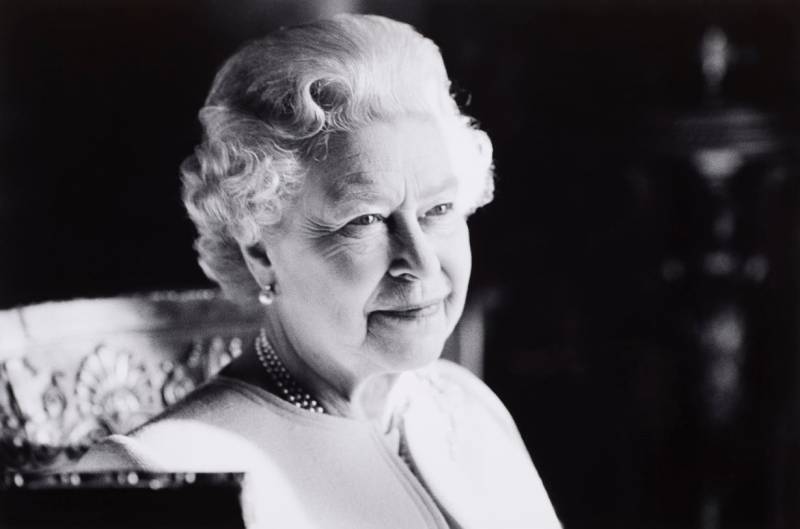
 From 1952 to 2022, the Queen saw it all. She witnessed 15 Prime Ministers come and go and the British Empire fall into decline to be replaced by the voluntary association of the Commonwealth of Nations. She lived through the sexual and feminist awakening of the 1960s, saw society change to become more open. The changing role of the media and its relation to democratic technology like social networks made her and her family celebrities first and the chosen rulers of God on Earth second, and she was forced to adapt with the times to try to remain relevant in an ever more cynical, fractured world.
From 1952 to 2022, the Queen saw it all. She witnessed 15 Prime Ministers come and go and the British Empire fall into decline to be replaced by the voluntary association of the Commonwealth of Nations. She lived through the sexual and feminist awakening of the 1960s, saw society change to become more open. The changing role of the media and its relation to democratic technology like social networks made her and her family celebrities first and the chosen rulers of God on Earth second, and she was forced to adapt with the times to try to remain relevant in an ever more cynical, fractured world.

 The supermarket will offer a shopping basket of 30 basic items for just 30 euros, containing everything from grocery staples like cereal, preserves, pasta, oil and coffee to a selection of personal care, cleaning and perfumery products. The promotion will be available at all Carrefour stores in Spain and online from September 12 until January 8.
The supermarket will offer a shopping basket of 30 basic items for just 30 euros, containing everything from grocery staples like cereal, preserves, pasta, oil and coffee to a selection of personal care, cleaning and perfumery products. The promotion will be available at all Carrefour stores in Spain and online from September 12 until January 8.
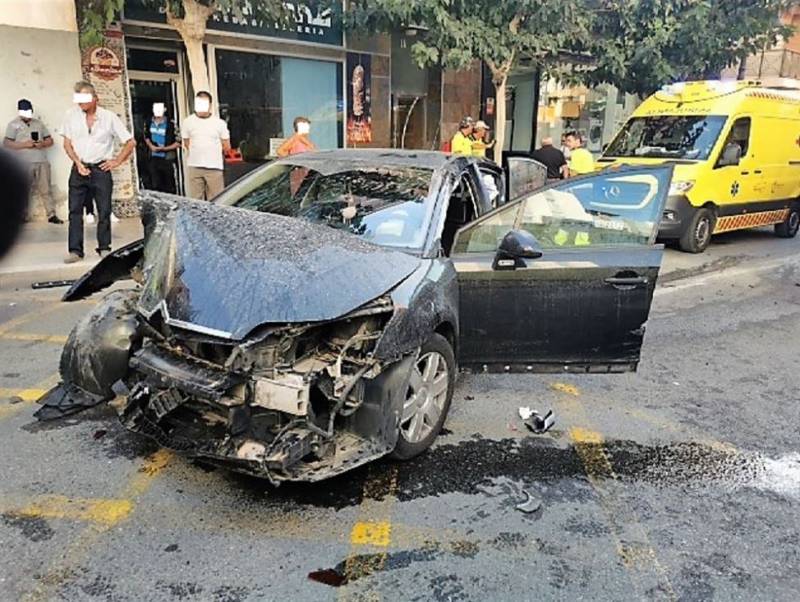 In Mazarrón, a young man has been arrested after he fled from the scene of a car crash that left two people, 67 and 55, in need of medical attention. The three-car smash happened on Monday morning, with the driver who tried to escape on foot physically assaulting anyone who tried to get in his way. Thankfully, neither of the drivers of the other cars were seriously injured, but it still beggars belief that anyone would cause an accident like that and then just try to run away. Makes you wonder what he had been drinking/smoking/hiding. The investigation continues…
In Mazarrón, a young man has been arrested after he fled from the scene of a car crash that left two people, 67 and 55, in need of medical attention. The three-car smash happened on Monday morning, with the driver who tried to escape on foot physically assaulting anyone who tried to get in his way. Thankfully, neither of the drivers of the other cars were seriously injured, but it still beggars belief that anyone would cause an accident like that and then just try to run away. Makes you wonder what he had been drinking/smoking/hiding. The investigation continues…
 Police investigating the crime got their first whiff of the man’s presence from an instant messaging app dedicated to the illegal supply of paid TV channels, an app that had been downloaded more than 50,000 times.
Police investigating the crime got their first whiff of the man’s presence from an instant messaging app dedicated to the illegal supply of paid TV channels, an app that had been downloaded more than 50,000 times. Residents and historians in rural Cadiz were left baffled earlier this week when they woke to find the 5,000-year-old Menhir de La Lancha megalith, located on the CA-6105 road between Villamartín and Arcos, completely whitewashed.
Residents and historians in rural Cadiz were left baffled earlier this week when they woke to find the 5,000-year-old Menhir de La Lancha megalith, located on the CA-6105 road between Villamartín and Arcos, completely whitewashed.